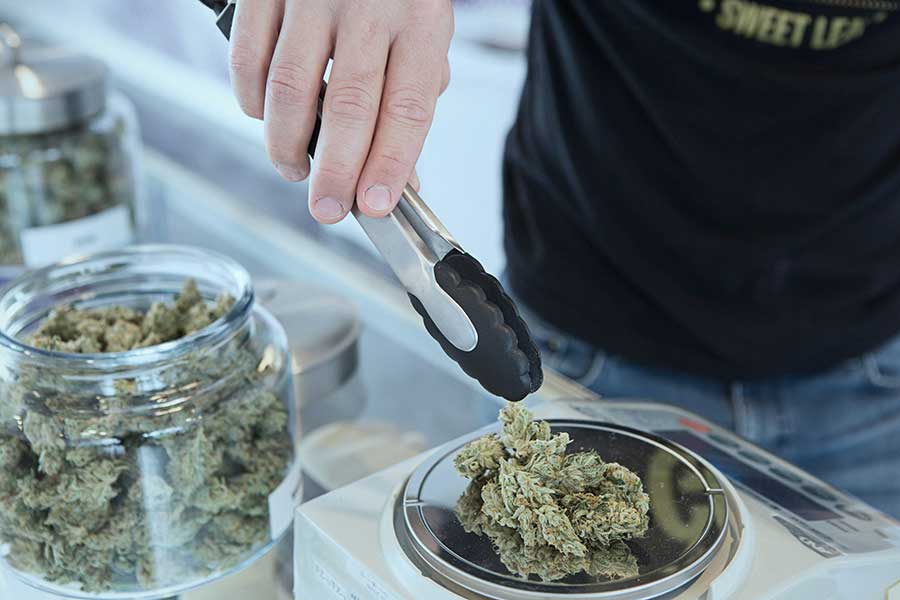
Travelers’ Guide to Cannabis in Thailand
Photo by Budding . on Unsplash
To help aspiring cannabis travellers avoid difficulties with Thailand’s bizarre cannabis laws, the Ministry of Public Health has published a handbook titled “10 Things Tourists Need to Know About Cannabis in Thailand.”
Since the marijuana plant (referred to as “Gancha” in Thai) was taken off the country’s list of Category 5 Narcotics on June 9 of this year, cannabis dispensaries and shops have sprung up all across the country, turning Thailand into the “Amsterdam of Asia.”
The decriminalisation of cannabis, according to public health minister Anutin Charnvirakul, is solely intended for medical use and to open up business prospects for Thai citizens.
Legislation that would forbid the recreational use of cannabis, which has surged unsurprisingly, was absent from the statement, making it an empty one.
Cannabis is a “restricted weed,” which means that it cannot be sold to anybody under the age of 20, to women who are pregnant or nursing, or through vending machines or online channels.
THC levels cannot be more than 0.2% in cannabis extracts, such as oils or food items.
The eighth and possibly most important piece of advice for travellers is that it is illegal and punishable by jail time to use marijuana in public areas.
Ten Things Visitors to Thailand Need to Know About Cannabis
- It is prohibited to bring cannabis seeds or plant parts into or out of Thailand for personal use.
Cannabis that has been imported is still regarded as a drug. The Ministry of Agriculture must grant authorisation for the import of seeds.
- Although it is allowed to cultivate cannabis, users must register in the “Plook Ganja” app from the Food and Drug Administration. Thailand marijuana
Since registration necessitates a Thai ID number, this is not particularly pertinent to tourists.
- A permit is required to use cannabis flower buds for research, export sales, and commercial processing. Thailand marijuana
Since cannabis blossoms are a “restricted herb,” the Department of Thai Traditional and Alternative Medicine must grant approval before using them for commercial or academic purposes.
- Except when under the direction of medical specialists, people under the age of 20, women who are pregnant, and women who are nursing are not permitted to use cannabis.
To reduce hazards, some groups are not permitted to use cannabis on their own.
- Permission is required in order to possess extracts with synthetic THC and more than 0.2% THC.
High-THC cannabis flowers are allowed to be sold. But even if a flower extract contains more than 0.2% THC, it is still regarded as a Category 5 narcotic. Category 1 is assigned to synthetic THC.
- Restaurants with permission to serve cannabis-infused food.
The Food Act prohibits the use of cannabis flowers in food or other food products, but permits the use of other cannabis products.
Before a meal is eaten, restaurants must inform their consumers that it contains one or more of their patrons.
- Specific channels are used to access cannabis health items that have been approved.
Cannabis may be found in cosmetics, culinary goods (not for infants), and herbal remedies (all parts of the plant except for the flower). The use of herbal medications that contain cannabis extract necessitates a prescription from a physician. Pharmacies, private clinics, and government hospitals all stock traditional cannabis treatments.
- It’s forbidden to use marijuana in public locations like malls and schools.
Recreational cannabis smoking in public is prohibited and is subject to a fine of up to 25,000 baht, up to three months in jail, or both.
- Refrain from operating a vehicle after smoking marijuana
Cannabis use has been linked to decreased judgement, motor coordination, and reaction time. After taking marijuana, avoid operating a vehicle as it may cause an accident.
- Those who consume cannabis and experience severe negative effects should contact a doctor.
Home remedies for typical side effects like dry mouth, thirst, tiredness, and dizziness include drinking water and getting some rest.
Any visitor to Thailand who gets major side effects from cannabis, such as heart attack, irregular heartbeat, tightness in the chest, fainting, or extreme vomiting, should get medical attention right away.
You may download the complete version of the Ministry of Public Health’s booklet, “10 Things Tourists Need to Know About Cannabis in Thailand,” here.
